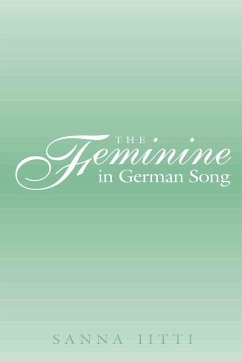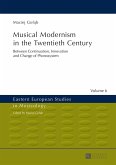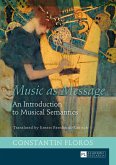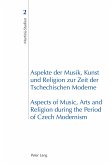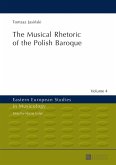Nineteenth-century composers were drawn to subjects related to gender. Songs about women open a view into nineteenth-century understandings of gender and sexuality. The author argues about ways to hear sexual difference in Lied, analyzing musical compositions in the light of composer biographies and in terms of musical gestures. Her comparison of the Suleika and Lorelei songs by Romantic composers, including the Mendelssohns and the Schumanns, reveals cultural and sexual anxieties besides conflicting arguments about music and its perception. Both the songs and their critique illustrate the functioning of gender in nineteenth-century composition and aesthetic reasoning.
Bitte wählen Sie Ihr Anliegen aus.
Rechnungen
Retourenschein anfordern
Bestellstatus
Storno

